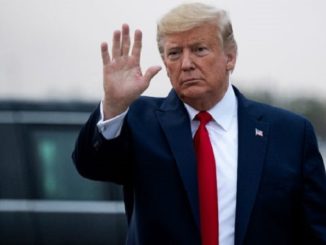
The Trump administration escalated its battle with European allies over the fate of the Iran nuclear accord, threatening penalties against the financial body created by Germany, the U.K., and France to shield trade with Iran from U.S. sanctions, Bloomberg reported.
Sigal Mandelker, the Treasury Department’s undersecretary for terrorism and financial intelligence, signaled in a May 7 letter obtained by Bloomberg that Instex, the European vehicle to sustain trade with Tehran, and anyone associated with it could be barred from the U.S. financial system if it goes into effect.
“I urge you to carefully consider the potential sanctions exposure of Instex. Engaging in activities that run afoul of U.S. sanctions can result in severe consequences, including a loss of access to the U.S. financial system,” Mandelker wrote in the letter to Instex President Per Fischer.
Germany, France and the U.K. created Instex in January to allow companies to trade with Iran without the use of U.S. dollars or American banks – thus allowing them to get around wide-ranging U.S. sanctions that were imposed after the Trump administration abandoned the 2015 Iran nuclear deal last year, Bloomberg adds.
A senior official involved in the internal debate that led to the letter said the U.S. decided to issue the threat after concluding that European officials, who had earlier downplayed the significance of Instex in conversations with the Trump administration, were far more serious about it than they had initially let on.
The official, who asked not to be identified discussing internal deliberations, said the letter was intended to serve as a warning that the U.S. would punish anyone associated with Instex, including businesses, government officials and staff, if they were working to set up a program to help Iran evade U.S. sanctions, Bloomberg writes.
Asked to comment on the letter, the Treasury Department issued a statement saying “entities that transact in trade with the Iranian regime through any means may expose themselves to considerable sanctions risk, and Treasury intends to aggressively enforce our authorities.”
European countries broadly opposed Trump’s decision to withdraw from the nuclear accord but have struggled to deliver the economic benefits Iran expected from the deal, known as the Joint Comprehensive Plan of Action, since the U.S. quit.




Be the first to comment